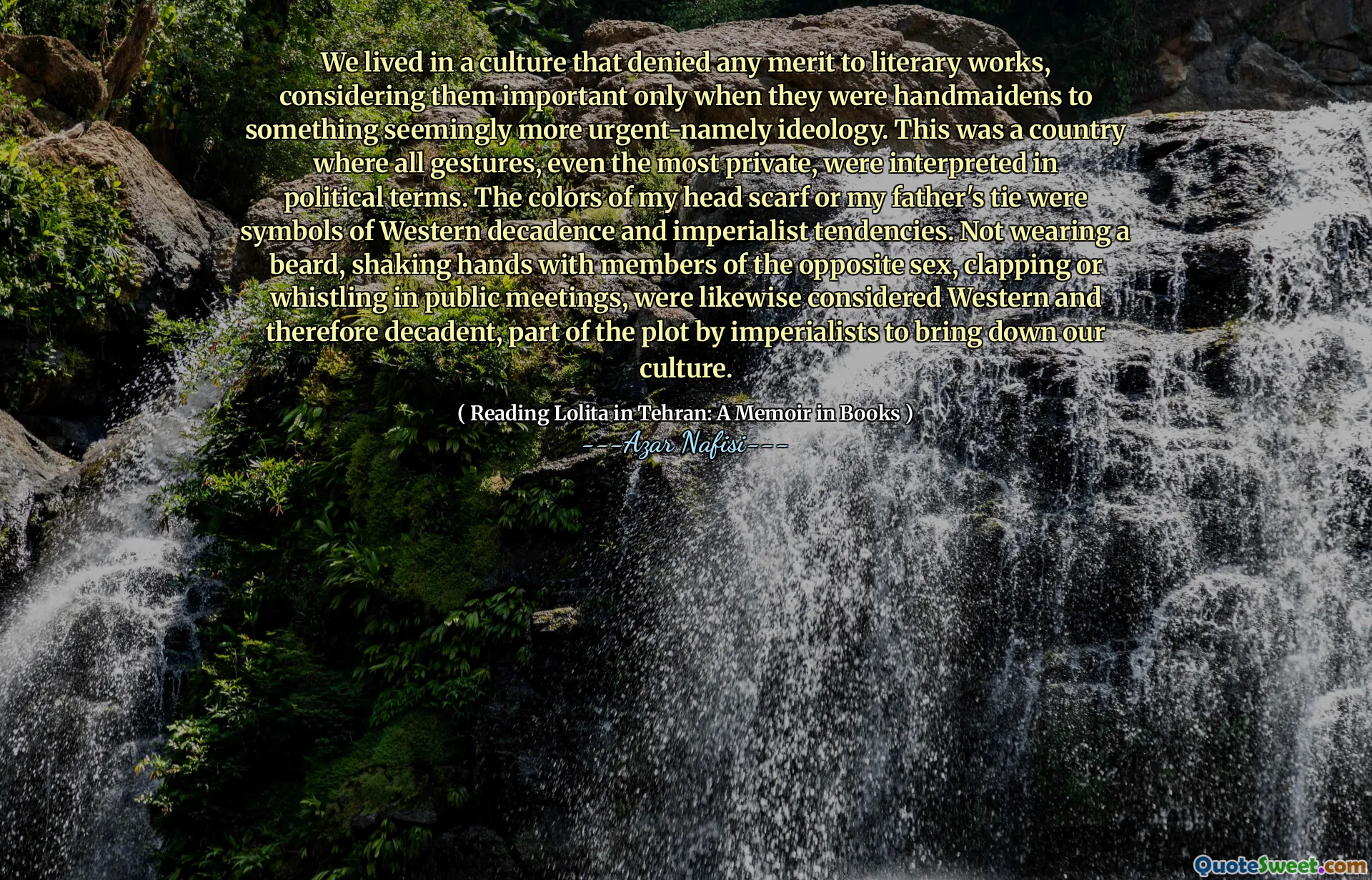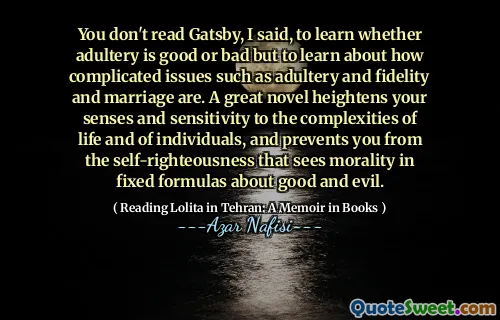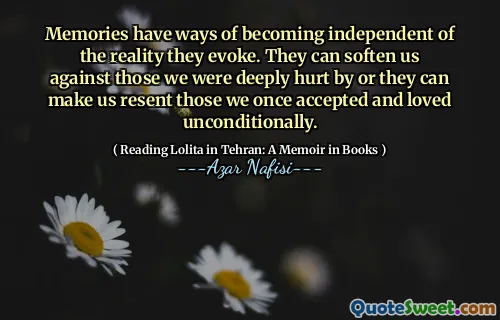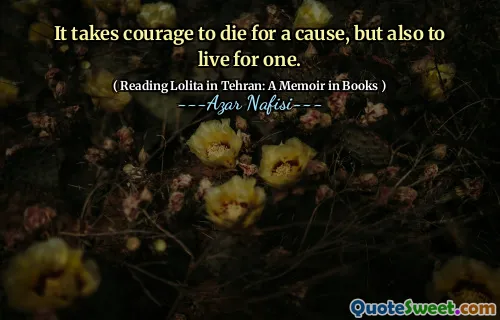
We lived in a culture that denied any merit to literary works, considering them important only when they were handmaidens to something seemingly more urgent-namely ideology. This was a country where all gestures, even the most private, were interpreted in political terms. The colors of my head scarf or my father's tie were symbols of Western decadence and imperialist tendencies. Not wearing a beard, shaking hands with members of the opposite sex, clapping or whistling in public meetings, were likewise considered Western and therefore decadent, part of the plot by imperialists to bring down our culture.
📖 Azar Nafisi
The author reflects on a society that dismisses the value of literary works, viewing them merely as tools for ideological expressions. In this environment, even the most personal choices are politicized, turning everyday acts into statements about allegiance to or rebellion against dominant ideologies. The significance of symbols, such as clothing and grooming, becomes magnified, as they are associated with Western influences deemed corruptive.
This atmosphere creates a tension between individual expression and political conformity, where simple actions are scrutinized for their perceived allegiance to either local or foreign ideals. The author’s experience highlights how the cultural context can suppress personal freedom in the name of ideological purity, rendering art and literature as secondary to political discourse.











